It typically takes a parent up to four hours a day to prepare meals and snacks for children. In the morning, breakfast would take 45 minutes to prepare, while lunch and dinner could take about an hour. While not forgetting the time needed for snacks in-between meals for fast-growing children.
But Kinderland have some solution for busy working parents like yourself! Let us introduce some snacks that can be bought off the shelf or prepared easily at home. Even better, these snacks are healthy, and it helps save time in food preparation.
Healthier instant snacks for your child
1. Yoghurt
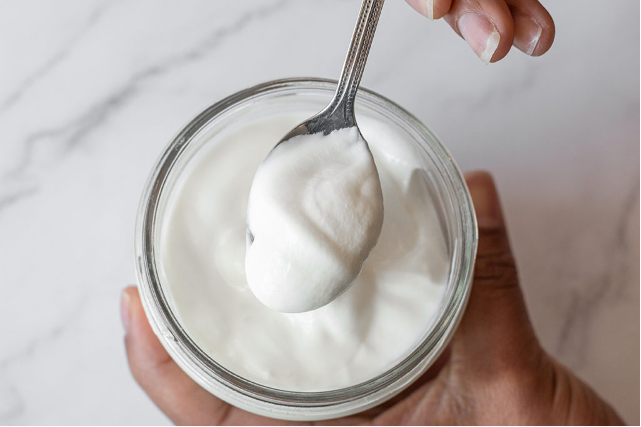
Benefits: Yoghurts can be high in protein, calcium, vitamins, or probiotics (live culture). The probiotics in yoghurt are good bacteria which can aid in establishing and maintaining a healthy gut in your child. It is also a good source of protein and a calcium-rich food to build strong, healthy bones. Always go for plain yoghurt and top it up with freshly cut fruits for more flavour, texture and natural sweetness.
2. Snack Bars
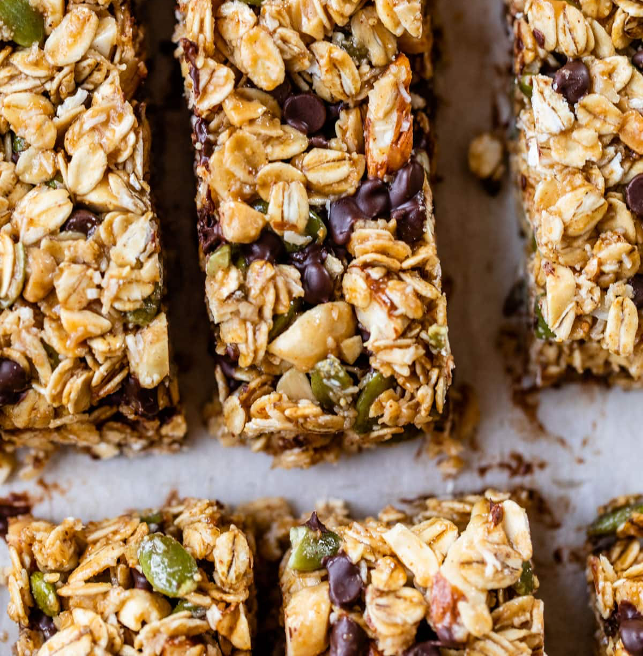
Benefits: Snack bars can contain a good amount of wholegrain (as oats are commonly used), which provides nutrients such as fibre, protein, vitamin B, iron, zinc and magnesium. Nuts/seeds are often added as well, contributing to healthy fats and fibre intake. However, be careful when choosing snack bars for your child, as they are often overly sweet. Be cautious of the sugar quantity; it should contain less than 15g of sugar per serving.
3. Fish Sticks (Air Fried)
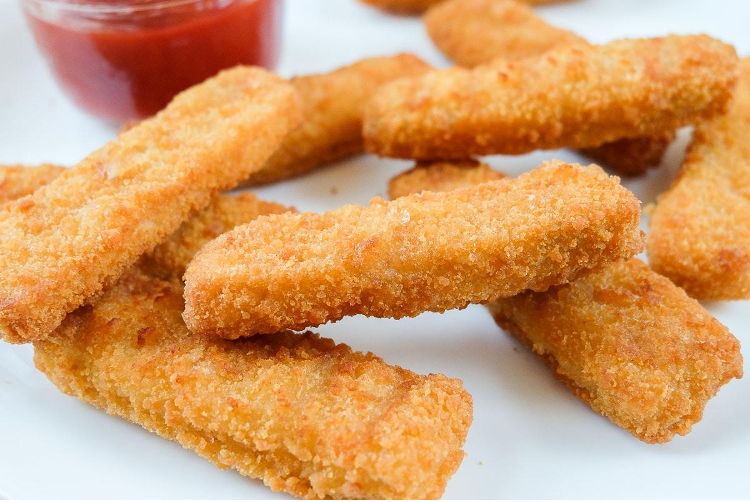
Benefits: Air-frying fish fingers is a healthier cooking method and reduce the intake of fats (which would be high if deep-fried). This snack is a source of protein and is convenient to prepare. Choose the lower sodium and saturated fat option so that it will be healthier for your child to consume. They provide vitamin B12, which is responsible for helping to turn fats and proteins into energy and protects against heart disease and cancers.
Easy-peasy snack recipes for children
1. Frozen Grapes
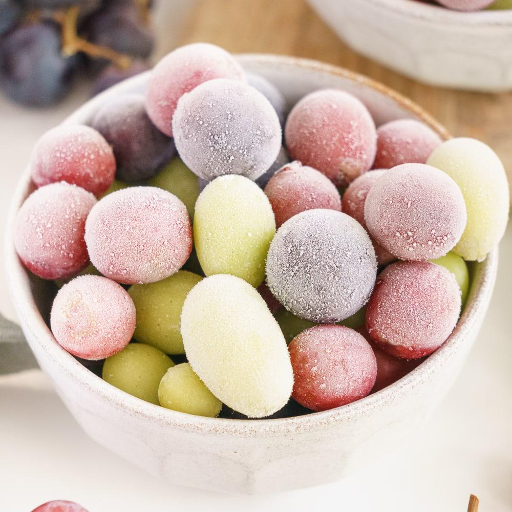
Ingredient: Grapes (as much as you want and an assortment of colours!)
Instructions: Rinse and dry the grapes. Remove stem from the grapes. Put all the grapes into a container. Freeze them overnight (at least 8 hours). After that, ready to serve.
Preparation time: 5 minutes
Benefits: Grapes contain fibre, B vitamins, vitamin C and vitamin K to fuel a child’s growing body. They are a good source of antioxidants that help protect healthy cells and reduce the risk of diseases. With natural sugar, frozen grapes are handy and great to snack on should your child craves something sweet.
2. Fruit Salad
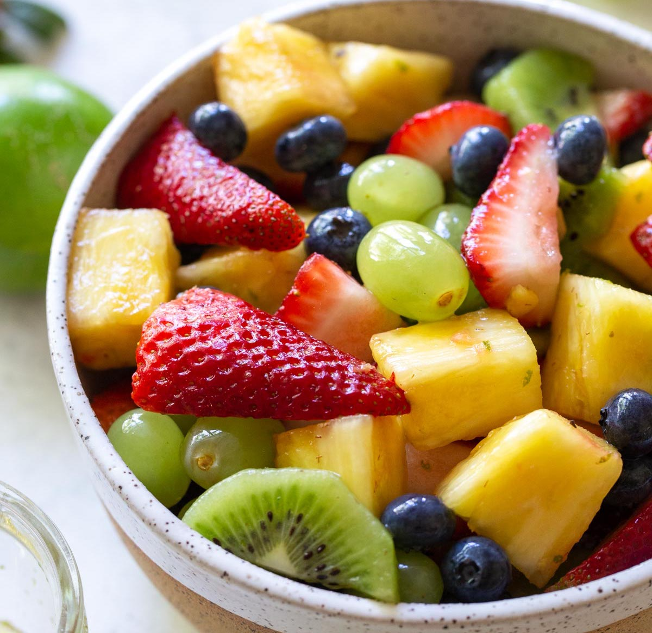
Ingredients:
- Dressing: Honey, freshly squeezed lemon juice and a zest of lemon
- Salad: Strawberries, blueberries, raspberries, kiwis, oranges, apples, mango, grapes (or simply pick your favourite ones)
Instructions: Cut up the fruits into bite size. Mix the dressing and the salad together. Leave it in the chiller until ready to be served (optional).
Preparation time: 20 minutes
Benefits: Rich in nutrients like iron, potassium and vitamin B6. It also provides healthy skin and hair, boost immune system, eases digestion and prevents heart diseases and treats anemia.
Fruits are naturally low in fat, sodium and calories. Eating a wide variety of fruits allow your child to obtain nature’s bounty for different types of nutrients and antioxidants. However, be mindful of the serving size given to your child in one sitting. Fruits still contain natural sugars on top of the abundance of nutrients, and can be easily over consumed. A small bowl of fruit salad should make a good afternoon snack or post dinner dessert.
3. Avocado Smoothie
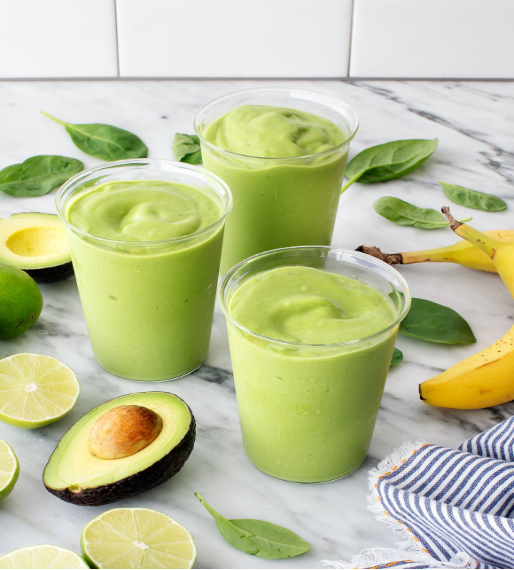
Ingredients: Avocado, frozen banana, frozen pineapple, spinach, milk and ice
Instructions: Blend the avocado, spinach, milk first. Then add in the rest of the ingredients and blend till smooth.
Preparation time: 5 minutes
Benefits: This hearty smoothie is packed with nutrients and is perfect for a quick breakfast or a cool snack in the hot afternoon.
Avocado: Contains very low sugar and sodium and is cholesterol-free. Instead, it is rich in healthy fats (unsaturated fat), fibre, vitamin C, vitamin K, magnesium and folate. These nutrients are essential to support healthy growth and bone health and build a strong immune system in young children.
Spinach: Nutrient-dense vegetable that provides many health benefits. Some nutrients include antioxidants (lutein and zeaxanthin), potassium, vitamin K and magnesium. Antioxidants are for eye health, potassium to reduce blood pressure, and vitamin K and magnesium are for bone health.
Adding on to the goodness, the banana is rich in potassium and fibre while pineapple adds B vitamins and vitamin C. Best of it all, the milk is rich in calcium, a crucial source for healthy bone development in young children.


